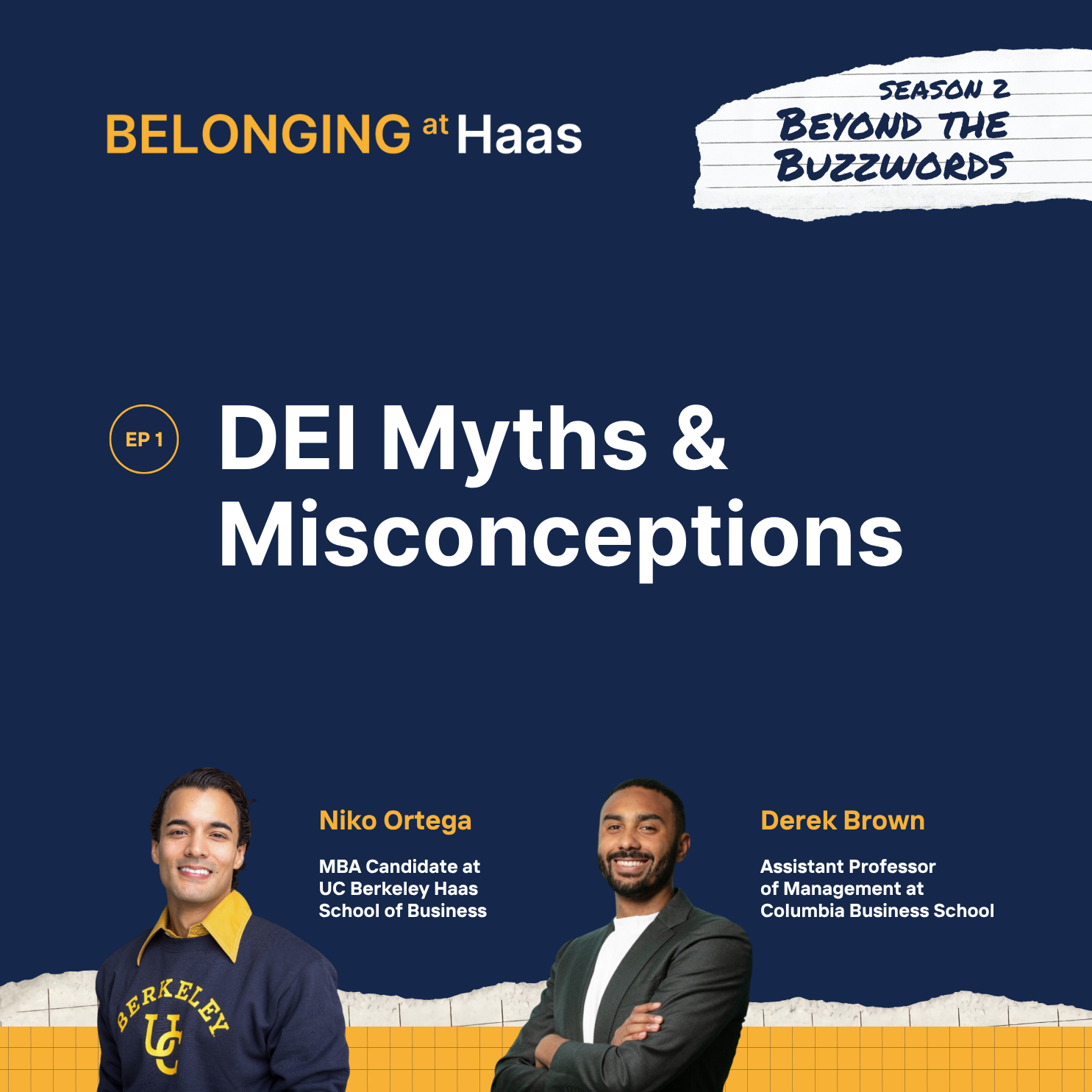In this episode of Belonging@Haas, host Efe Edevbie interviews Niko Ortega, an MBA candidate at UC Berkeley Haas School of Business, about common misconceptions about Diversity, Equity, and Inclusion (DEI) and then they gain insight from Derek Brown, an assistant professor of management at Columbia Business School, about the evolving landscape of DEI.
Their discussion examines the historical context of DEI, the shift in cultural and political climates, the concept of zero-sum thinking, and the complexities of meritocracy within organizations and universities to see how DEI theory translates into practice, and discuss why DEI is not just a moral imperative but also a strategic advantage.
Belonging at Haas Podcast is produced by University FM.
This episode was also produced by Efe Edevbie.
Developed in partnership with the Haas MBA Student Government Association.
Episode Quotes:
Derek shares a bit of his research and thoughts on zero sum thinking
[13:11] Derek Brown: In my work, I largely find that zero-sum thinking, or perceiving that certain policies and practices operate in a zero-sum manner, is tethered to one’s group membership, and so it is advantage group members. The idea that you have more opportunity or greater access to resources, whatever resource that is, and seeing evidence of that, but now seeing a policy that provides more to another group, even though it doesn’t affect your group, it’s like that information that, oh, I know that I have more access, and I can see what’s happening here. I know that maybe I’m not monetarily economically being harmed, but it feels like I have less than. And that’s maybe about one source of zero-sum thinking. But I don’t even know empirically that my data can support that that’s where it starts, and so there’s a lot of things to do, questions to answer about where these things, where these beliefs come from.
Meritocracy is malleable and largely subjective.
[23:46] Derek Brown: Meritocracy is largely a myth based on the decisions that are being made. And it’s a myth because a lot of it is being relied on biased metrics in an academic setting, in a lot of universities.
How Haas’s admissions process goes beyond scores and resumes.
[28:44] Niko Ortega: One of the nice things about the Haas application process [is that] I felt that, by and large, most of the other schools I applied to were pretty standard, asking me more or less the same questions and a few things regarding the culture of the institution. But I actually felt like Haas took the intentional effort to ask, Hey, like what is your story? What do you care about? What shaped who you are today? And I found that really profound because, oh, they actually are seeing me as a person and for who I am, what I can bring to this institution, my lived experiences, and what I want to do. And I felt like many of the other schools didn’t take that extra step to actually get to know students. And I think, again, we can’t really use these simple heuristics, right? To kind of ultimately determine who’s going to be successful or not. We rely on them because again, they’re easy, and we don’t have algorithms to work with, right? But if we can actually factor in these intangible things that don’t show up on a test score or a resume of grid, of determination, right? Overcoming hardship, having empathy. These are things that I think can ultimately distinguish people that are going to make outsized contributions to their communities, right?
Diversity sparks curiosity.
[42:37] Niko Ortega: When you are in diverse settings and rooms of different backgrounds, lived experiences, that’s when you’re curious, when your mind starts picking, oh why is this different? Why does the world work this way? So, I think it’s an added benefit.

